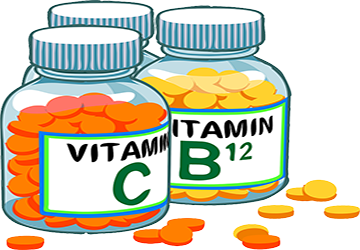The Top 5 Nutritional Supplements for Better Health and Fitness
Maintaining good health and fitness is essential for a happy and fulfilling life. While a balanced diet and daily exercise are the pillars of good health, nutritional supplements can help bridge the gap and provide the body with the necessary nutrients that might be missing from our diet. This article will discuss the top 5 nutritional supplements for better health and fitness.
1. Whey Protein
Whey protein is a popular nutritional supplement widely used by fitness enthusiasts, athletes, and bodybuilders. It is a complete protein that contains all nine essential amino acids, making it an ideal accessory for muscle growth and repair. Whey protein is also rich in branched-chain amino acids (BCAAs), which help reduce muscle breakdown and improve recovery after exercise.
In addition, whey protein is an excellent source of leucine, an amino acid crucial in stimulating muscle protein synthesis. Studies on whey protein show that proper use can help increase muscle mass, improve muscle strength, and enhance overall body composition.

2. Creatine
Creatine is another popular nutritional supplement commonly used by athletes and bodybuilders. It is a natural compound found in meat and fish and helps stimulate the muscles during high-intensity exercise. Creatine works by growing the production of ATP, the primary energy source for the muscles.
Studies have shown that creatine can help improve muscle strength, power, and endurance, and it can also help increase lean muscle mass and reduce muscle damage and inflammation after exercise. In addition, creatine has been shown to improve cognitive function and may have neuroprotective properties.
3. Omega-3 Fatty Acids
Omega-3 fatty acids are crucial in maintaining good health as they are essential fats. They are primarily found in fatty fish like salmon, mackerel, and sardines but can also be obtained from supplements.
Omega-3 fatty acids offer numerous health benefits, including overcoming inflammation, improving heart health, and boosting brain function. They are also crucial for maintaining healthy skin and eyes.
4. Vitamin D
Vitamin D is a fat-soluble vitamin for maintaining strong bones and teeth, and it also plays a crucial role in controlling the immune system and reducing inflammation. Vitamin D is primarily obtained through sunlight exposure but can also be obtained from supplements.
Studies on vitamin D show that vitamin D supplementation can help reduce the risk of osteoporosis, improve muscle function, and reduce the risk of certain types of cancer. It may also have a positive effect on mood and mental health.
5. Magnesium
Magnesium is a mineral involved in numerous physiological processes in the body, and it is essential for maintaining strong bones, regulating blood pressure, and supporting muscle and nerve function. Magnesium can be obtained from nuts, seeds, and leafy green vegetables, but it can also be obtained from supplements.
Studies have shown that magnesium supplementation can help reduce inflammation, improve insulin sensitivity, and promote relaxation and better sleep. It may also help overcome the risk of chronic diseases like heart disease and type 2 diabetes.
How much of each supplement should you take, and what is the best time?
It is important to note that while nutritional supplements can provide the body with the necessary nutrients, it is essential to take them correctly to ensure maximum benefits.
As for whey protein, it is recommended to take it within 30 minutes after exercise to maximize muscle protein synthesis. It can also be taken as a meal replacement or a snack throughout the day. A high-quality whey protein supplement should be chosen, and adhering to the recommended dosage is crucial.

Creatine is typically taken in a loading phase where a higher dose is taken for the first few days, followed by a maintenance dose. The loading phase typically lasts 5-7 days, where 20-25 grams of creatine is taken daily, followed by a maintenance dose of 3-5 grams daily. Drinking plenty of water when taking creatine is essential to avoid dehydration.
Omega-3 fatty acids are typically taken in the form of fish oil supplements. Choosing a high-quality supplement free from contaminants and with high levels of EPA and DHA is essential. Taking 1-2 grams of omega-3 fatty acids daily, preferably with meals, is recommended to enhance absorption.
Sunlight exposure can provide the body with vitamin D, but supplements can be taken for those who are deficient or do not get enough sun exposure. For adults, the recommended daily vitamin D intake is 600-800 IU, but this may vary based on individual needs. To improve absorption, it's advisable to take vitamin D and a meal containing fat.
Magnesium can be obtained from foods or supplements. The recommended daily magnesium consumption for men is between 400-420 mg, while for women, it is between 310-320 mg. Taking magnesium with meals to enhance absorption and avoiding it with calcium supplements is recommended, as calcium can interfere with magnesium absorption.
Can these supplements replace a balanced diet and exercise, or are they only intended to supplement them?
Supplements are intended to supplement a balanced diet and exercise, not to replace them. While supplements can provide additional nutrients and support to your overall health, they cannot replicate the benefits of a healthy diet and daily exercise.
A diet that includes a variety of whole foods, fruits, vegetables, lean protein, and good fats in appropriate proportions can provide the body with the essential vitamins, minerals, and nutrients required for optimal functioning. Exercise is also critical to maintaining overall health, improving cardiovascular function, building muscle strength, and reducing the risk of chronic diseases.
Supplements can be helpful in certain situations, such as for people with nutrient deficiencies, athletes with increased nutrient needs, or people who cannot get enough nutrients from their diet alone. However, it's important to note that supplements should be used with a healthy lifestyle, including a balanced diet and regular exercise, rather than replacing these habits.
Take away:
Nutritional supplements help bridge the gap and provide the body with the necessary nutrients that might be missing from our diet. While numerous accessories are available on the market, whey protein, creatine, omega-3 fatty acids, vitamin D, and magnesium are some of the most effective supplements for improving health and fitness. However, it is essential to note that supplements A balanced diet and regular exercise should be practiced alongside the use of supplements and should only be taken under the guidance of a healthcare professional.
Related Article
The Truth About Vaccinations


